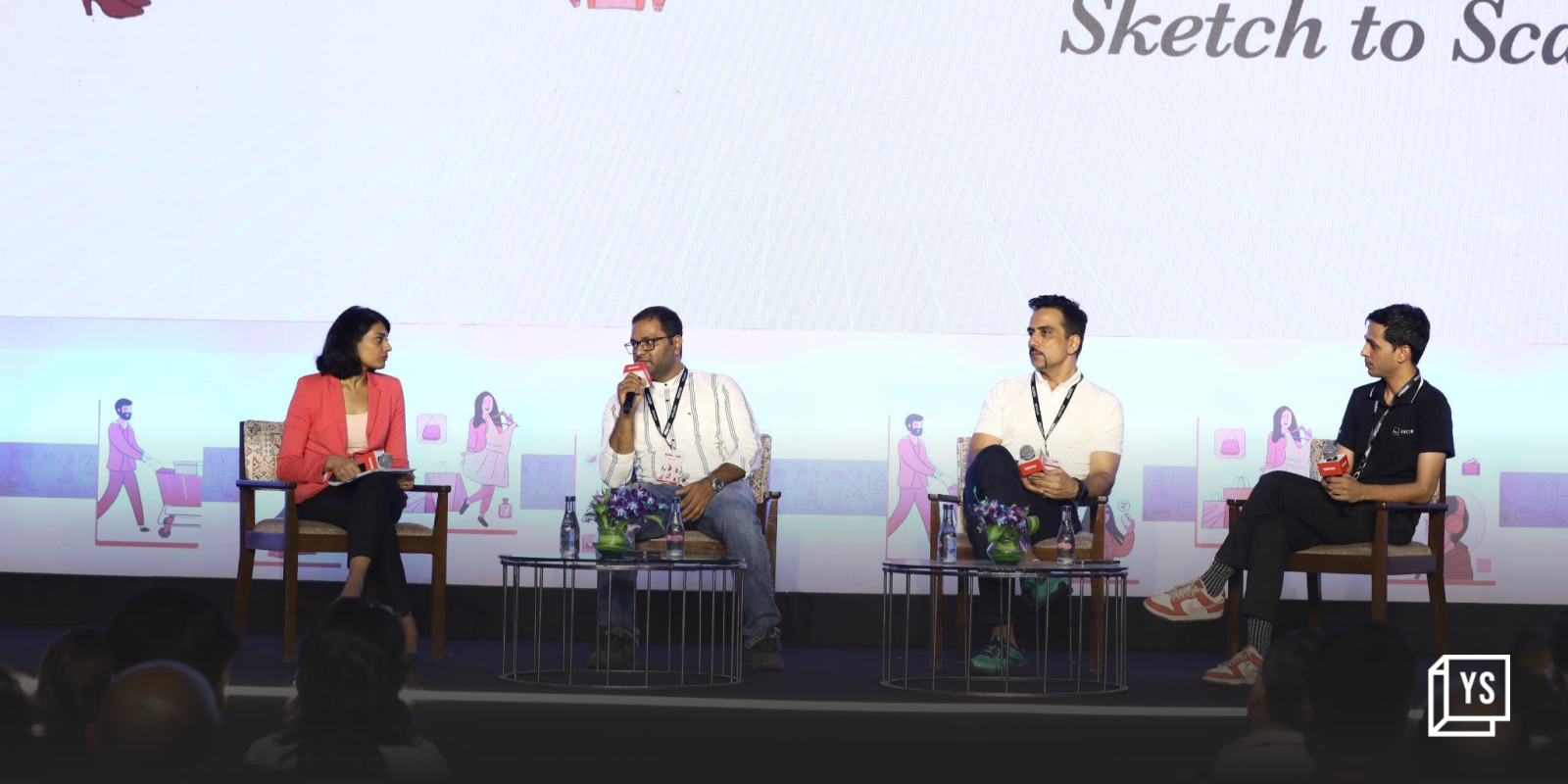
Entrepreneurs must have a solid grasp of the principles of raising capital, as businesses need both equity and debt, but it’s crucial to maintain a fine balance between the two, panellists emphasised at YourStory’s Brands of India 2024 summit.
Vasanth Tamilselvan, Founder of ; Amar A Ummat, Founding Partner of ; and Prashant Sharma, CMO and Business Head at House of Brands, discussed various methods of raising capital, the importance of strong fundamentals, and omnichannel strategy during the panel.
Reflecting on his experiences, Tamilselvan asserted that one of his primary learnings is to “always raise money when you don’t need it”.
“There was a lot of capital knocking on our doors, and we said no to it. Initially, we thought we would scale our business to a certain level, find the product-market fit, identify the channels, set the fundamentals right and then take this money…during the course of this, we burnt a lot of money, which, in fact, was a learning,” he said, adding that he would not have made the same choice today and would have taken the equity.
Ummat concurred, adding that the best time to raise debt is when one doesn’t need it.
He suggested that depending on a company’s stage of operation, equity capital is crucial during the installation period due to its non-repayable nature, allowing shareholders to accumulate wealth over time while pursuing profitability, while in the deployment phase, raising debt at a lower cost than the expected profitability margin creates arbitrage.
Though raising capital is crucial for a growing business, the funding winter has prompted a significant shift towards prioritising metrics that hold long-term significance within a business context, according to the panellists.
“This funding winter has cleared up a lot of froth in the market. The businesses that make sense at a unit metric level are the ones succeeding, scaling up, and also finding the capital,” explained Sharma.
There are certain criteria for investing in businesses, he added, with the top three being a robust business model in a growth-oriented category, alignment of values with the founder, and a strong team surrounding the founder to facilitate scaling.
.thumbnailWrapper{
width:6.62rem !important;
}
.alsoReadTitleImage{
min-width: 81px !important;
min-height: 81px !important;
}
.alsoReadMainTitleText{
font-size: 14px !important;
line-height: 20px !important;
}
.alsoReadHeadText{
font-size: 24px !important;
line-height: 20px !important;
}
}

However, once a certain scale is reached, the cost of acquisition may rise, emphasising the importance for brands, especially D2C ones, to consider offline channels, according to Sharma.
“Being present offline adds a certain amount of trust and builds a brand, which has a positive impact on your online businesses as well,” he noted, adding that omnichannel offers good opportunities to tap into new customers.
Ariro Toys’ Tamilselvan highlighted that establishing multiple touchpoints enhances online conversion rates, as the trust factor increases when consumers have the opportunity to physically interact with the product. This rationale led to the adoption of an omni-channel strategy for the toy startup.
For Ummat, flawless supply chain management and extensive distribution are essential for the success of any product, particularly for D2C brands.
Each and every brand has its own DNA, stressed Tamilselvan. He advised young entrepreneurs to look inward, as there’s a lot of noise out there, and urged them to be very cognizant. While funded brands may receive more attention, there are also bootstrap brands worth celebrating. He encouraged seeking out and learning from these examples.
D2C brands are emphasising personalisation and cause-driven initiatives, particularly targeting Gen Z, Ummat said, adding that there’s also a significant focus on enabling voice search across a wide range of D2C companies.
“When you are building for a D2C, it’s sort of a paradox. There is so much noise, but to be able to declutter and spend time with your passionate customers and your loud customers is the main funda that will make or break,” he noted.
Understanding who will assist in solving unit economics and improving product development is crucial, Ummat explained, adding that they have witnessed this as a make-or-break factor in D2C companies over the past three years.
Sharma highlighted the importance for every founder to prioritise innovation and evolve their business model continually. He noted that the journey from zero to one, achieving the first crore, is vastly different from scaling one to ten, ten to hundred, and beyond.
“Your competition is catching up. So whether you like it or not, your model, if it’s good, then people are copying it and coming after you,” he added.
Edited by Jyoti Narayan










